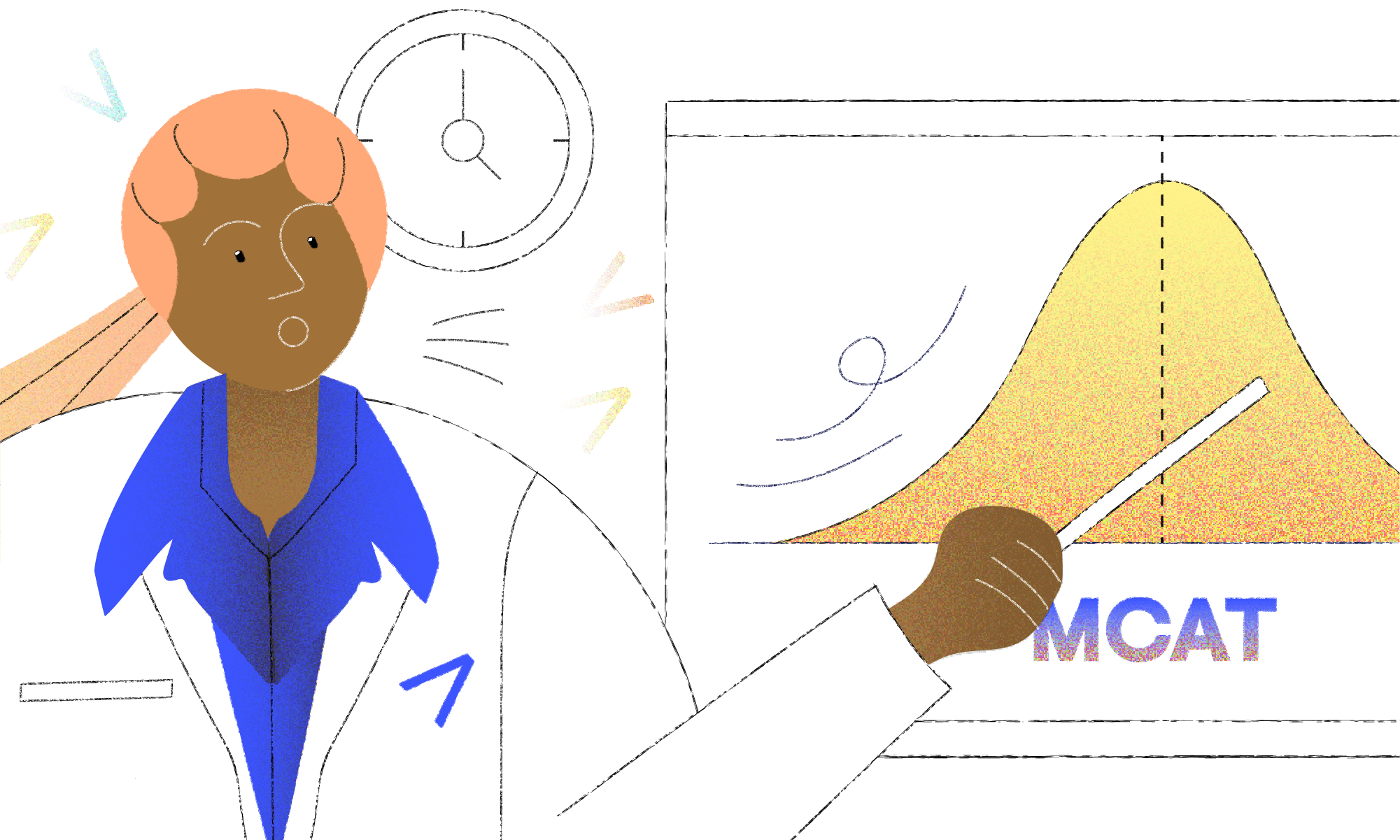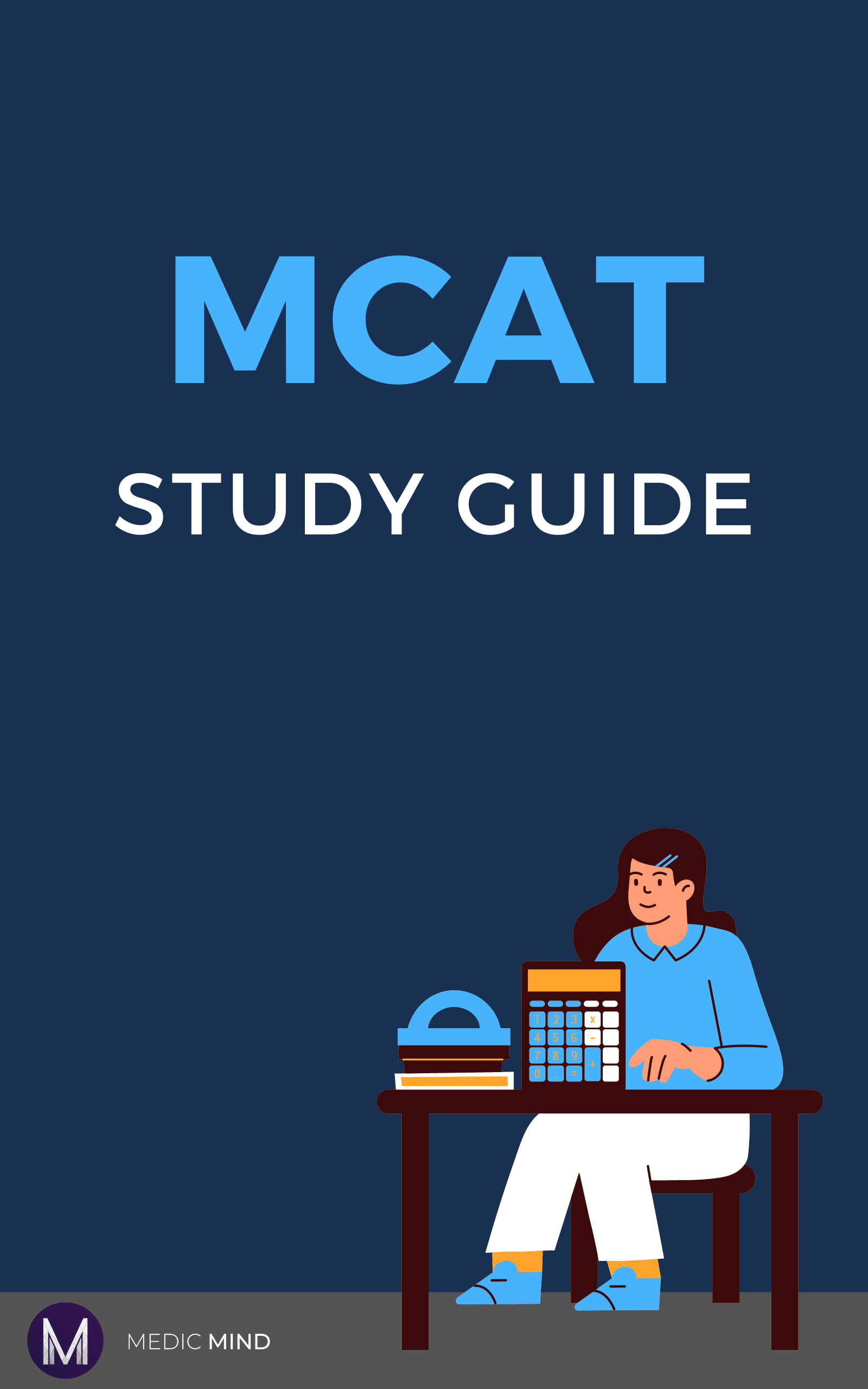
MCAT Truths Revealed: Debunking Popular Myths
Discover the absolute truth about the MCAT! Are you preparing for this critical exam and feeling overwhelmed by all the myths and misconceptions surrounding it? You’re not alone. This blog deeply explores the most common rumors and false information hindering your preparation.
With valuable insights from experts and solid research, we’re here to set the record straight. Say goodbye to misleading advice and embrace the facts that will help you succeed. Get ready to debunk the popular myths and uncover the essential truths guiding you toward MCAT triumph.
Myth 1: The MCAT Only Tests Knowledge
Myth:
Many students believe that the MCAT is solely a test of knowledge, assuming that memorizing facts and concepts alone will guarantee success.
Debunking the Myth:
However, the MCAT goes beyond simple recall. It evaluates your knowledge and your critical thinking skills, problem-solving abilities, and application of knowledge in complex scenarios. Merely memorizing content with understanding its application can be beneficial to your performance.
The Truth:
You need to develop analytical and reasoning abilities to excel on the MCAT. The MCAT demands a deeper understanding and the ability to think critically about the information. Merely memorizing content without grasping its real-world applications can hinder your performance and prevent you from reaching your full potential.
Valuable Advice:
To bolster your preparation, supplement your content review with ample practice questions, mock exams, and analytical thinking exercises. These resources will solidify your knowledge and sharpen your critical thinking skills, enabling you to approach MCAT questions with confidence and precision.
Emphasize practicing with passage-based questions that require you to apply your knowledge to real-life scenarios. This approach will help you cultivate a robust skill set beyond rote memorization. Remember, knowledge is essential, but the ability to apply that knowledge is equally crucial for MCAT success.
Myth 2: More Study Hours Guarantee a Higher Score
Myth:
Many aspiring MCAT test-takers believe that marathon study sessions lasting hours upon hours are the most effective way to prepare for the exam. The misconception is that the longer the study session, the better the retention and understanding of the material.
Debunking the Myth:
However, research has shown that studying for extended periods without breaks can lead to diminishing returns. Human attention and focus naturally decline over time, and prolonged study sessions can hinder learning and information retention. Additionally, excessive study sessions can cause burnout, negatively impacting motivation and overall performance.
The Truth:
Optimal studying involves balancing focused study periods with regular breaks. Breaking study sessions into smaller, manageable chunks allows for better concentration and improved retention of information. It promotes active learning and reduces the risk of mental fatigue, enhancing long-term memory.
Valuable Advice:
Implement the Pomodoro Technique, a popular time-management method, to maximize your study efficiency. Set a timer for 25 minutes of focused studying, followed by a 5-minute break. After completing four consecutive study sessions, take a longer break of 15-30 minutes. This structured approach maintains mental freshness, prevents burnout, and optimizes study sessions.
Furthermore, make sure to prioritize quality over quantity. Instead of fixating on the number of hours you study, emphasize the effectiveness of your study techniques. Actively engage with the material through practice questions, concept mapping, and teaching others. This hands-on approach enhances understanding and retention, allowing you to maximize your study time.
Remember, effective MCAT preparation is about studying smarter, not harder. By incorporating regular breaks, adopting the Pomodoro Technique, and focusing on quality learning, you’ll optimize your study sessions and increase your chances of achieving MCAT success.
Myth 3: MCAT Scores Determine Intelligence and Future Success
Myth:
There is a common misconception that MCAT scores directly measure one’s intelligence and predict future success in the medical field. Many believe that a higher MCAT score automatically guarantees a prosperous career.
Debunking the Myth:
However, it’s essential to recognize that MCAT scores are just one component of the admissions process and do not solely determine intelligence or future achievements.
The Truth:
Medical schools consider various factors when evaluating applicants, including personal statements, extracurricular activities, letters of recommendation, and interview performance. They seek well-rounded individuals with a genuine passion for medicine, empathy, and strong communication skills, not just high test scores.
Valuable Advice:
Rather than obsessing over achieving a perfect score, focus on developing a holistic profile that showcases your unique qualities and experiences. Dedicate time to meaningful community involvement, research projects, clinical exposure, and leadership opportunities.
Moreover, invest in enhancing your non-academic skills, such as effective communication, teamwork, and adaptability. Medical schools highly value these qualities and will contribute to your success as a future healthcare professional.
While a solid MCAT score is essential, it’s just one piece of the puzzle. Emphasize personal growth, cultivate your passion for medicine, and demonstrate your dedication to serving others. By presenting a well-rounded profile, you’ll stand out as a promising candidate with the qualities needed for success in the medical field.
Ultimately, your intelligence and potential for success cannot be solely determined by a standardized test score. Combining your unique qualities, experiences, and personal growth will shape your journey toward a fulfilling medical career.
Myth 4: Cramming is an Effective Last-Minute Strategy
Myth:
Many students believe cramming all the MCAT material in a last-minute study session can lead to successful results. They think intense studying right before the exam can help them retain information and perform well.
Debunking the Myth:
However, cramming is an ineffective strategy for the MCAT and can hinder your performance on the test.
The Truth:
The MCAT assesses your knowledge and ability to think critically and apply concepts in various contexts. Cramming does not allow for deep understanding, proper retention, or development of essential problem-solving skills.
Valuable Advice:
Instead of cramming, focus on consistent and structured study throughout your preparation. Break down your study material into manageable chunks and allocate dedicated study time for each topic.
- Prioritize active learning techniques such as practice questions, concept mapping, and teaching others. These methods facilitate better understanding and long-term retention of the material.
- Use practice exams to simulate the actual test environment and assess your readiness.
- Analyze your performance, identify areas of improvement, and adjust your study plan accordingly.
The MCAT is a comprehensive exam that requires strategic and thorough preparation. Adopting a consistent and organized study approach better understand the content and enhance your critical thinking skills, leading to better performance on test day. Avoid cramming and invest your time in effective study techniques that foster mastery of the material.
Conclusion:
Debunking MCAT myths reveals the truth for successful preparation. Say goodbye to misconceptions and embrace accurate information. Master critical thinking, study smart, and showcase your holistic profile. Trust in your abilities and set yourself up for MCAT success.
And if you still need help, we’re always there to help you navigate this challenging medical world. For valuable advice, one-to-one tutoring sessions, or some free resources, visit Medic Mind.
FAQs
→ How important are MCAT scores for medical school admissions?
MCAT scores are essential to the medical school admissions process. While they are important, it’s crucial to remember that admissions committees consider a holistic profile, including GPA, personal statements, letters of recommendation, and extracurricular activities. A strong MCAT score can enhance your application but is one of many determining factors.
→ How many times can I take the MCAT?
You can take the MCAT up to three times in a single testing year, four times in two consecutive years, and up to seven times overall. However, it’s important to note that multiple attempts may have implications for your application, and it’s advisable to strive for your best performance in as few attempts as possible.
→ Can I study for the MCAT while taking other classes?
Studying for the MCAT while taking other classes is possible, but it requires effective time management and prioritization. Create a schedule that allows for dedicated MCAT study time while accommodating your other academic commitments. Be proactive in managing your time and strive for a balance between coursework and MCAT preparation.
→ How soon should I start preparing for the MCAT?
It is recommended to start preparing for the MCAT at least 3-6 months before your desired test date. This timeframe allows for comprehensive content review, practice, and sufficient time to address any areas of weakness. However, adjust the timeline based on your individual needs and study habits.






Was this article helpful?
Still got a question? Leave a comment